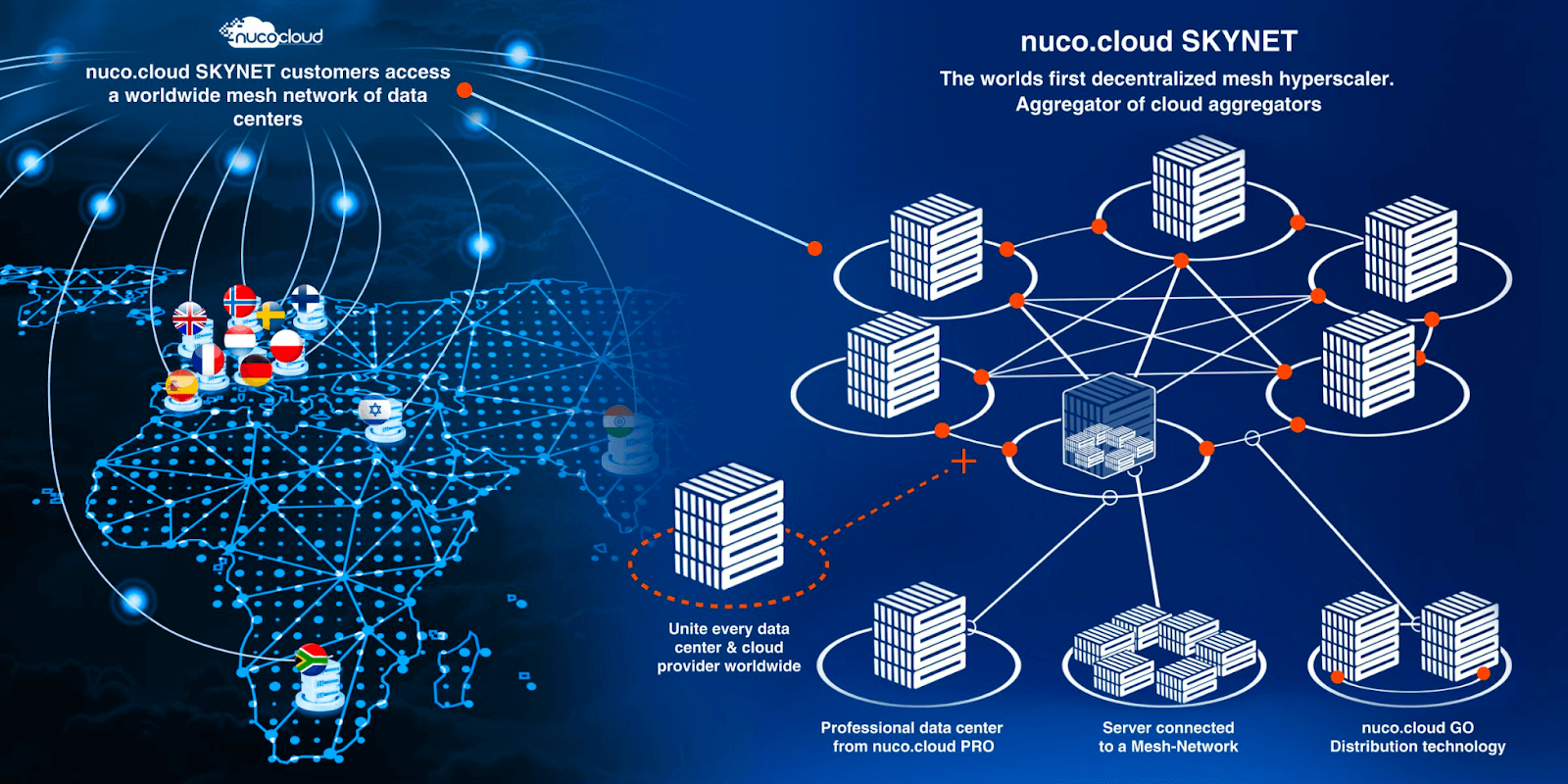
DePIN, or Decentralized Physical Infrastructure Network, is an emerging trend in the Web3 space. Its impact cannot be overstated, with a market potential currently valued at around $2.2 trillion and an expected growth of approximately $3.5 trillion by 2028.
By combining blockchain, the Internet of Things, and physical infrastructure, it is set to revolutionize various industries, such as cloud computing, which is heavily needed in the booming AI market. A prime example of DePIN in the cloud computing sector is nuco.cloud, a decentralized network of cloud computing aggregators.
What is DePIN and how does nuco.cloud align with it?
DePIN represents a change in the way we build and operate physical infrastructure. It involves creating networks that connect physical devices in a decentralized manner, often supported by crypto rewards. This model allows for a democratized technology landscape that competes with, or even replaces, centralized technological offerings.
nuco.cloud’s concept is exactly the same. It focuses on enhancing DePIN for widespread benefits by offering a decentralized network that connects computing power providers or data centers and those needing that power.
Key components of DePIN include hardware that helps connect networks to the real world, as seen in nuco.cloud’s decentralized network where any companies or even individuals with any device, whether it’s a computer or laptop, can actively contribute their idle computing power. The best part is that nuco.cloud is a win-win for both parties: the providers earn rewards in nuco.cloud’s native NCDT token for contributing unused computing power, and the users enjoy the benefits of massive cost savings.
Advantages of the nuco.cloud’s DePIN approach
DePIN networks require scalability to adapt to varying demands. nuco.cloud offers this flexibility through a range of distributed cloud computing solutions, which are significantly 70-90% cheaper than traditional cloud services. Their products, including nuco.cloud GO taps into consumer devices, while nuco.cloud PRO, CUSTOM, and SKYNET utilize idle computing power from established data centers around the world. Additionally, nuco.cloud PRO & CUSTOM solutions provide advanced filtering options like hardware preference and data center location, embodying the DePIN ethos of decentralized, scalable solutions.
Notably, by utilizing the idle power more efficiently, nuco.cloud’s decentralized approach helps reduce carbon emissions as the environmental impact of data centers and AI operations is a growing concern today.
Particularly, nuco.cloud SKYNET is an innovative product that combines the infrastructure of nuco.cloud PRO with the distribution technology of nuco.cloud GO, creating a powerful and scalable cloud computing solution which is the world’s first decentralized mesh hyperscaler. Any data center can be seamlessly integrated into this network, which aligns with the DePIN model by decentralizing the physical infrastructure of cloud computing. This solution enables nuco.cloud to offer up to 70% more cost-effective alternative than traditional models such as AWS.
What’s more, nuco.cloud’s decentralized cloud computing architecture, compared to centralized systems, offers a higher level of data security, which is a top priority for AI startups.
DePIN’s Implications
nuco.cloud’s approach aligns with the DePIN framework, offering decentralized, sustainable, and scalable solutions. For AI startups, this means access to powerful computing resources without the high costs and inflexibility of traditional models. The integration of nuco.cloud within the DePIN ecosystem exemplifies the potential for decentralized models to transform industries and foster innovation, particularly in the rapidly evolving field of AI, which is projected to grow to $1,345.2 billion by 2030 with a CAGR of 36.8%).









